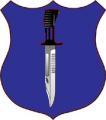Shake things up? They had a substantially malign influence. That people still hold thier ideas to be useful and insightful essentially shows the mess military thought is in.
You may want to actually read what Fuller in particular wrote. The result of his rather wooly thinking, was no good tanks for the UK until 1944! Not a mistake the Germans or Russians made ONCE THEY REJECTED Fullers ideas. If you want to start a separate thread on Fuller, go ahead.Abysmal ideas on armour? Yea I guess with 80 odd years of hindsight one could pick holes in any theory from those times.
I certainly do not aspire to the Fuller/Liddell-hart status. I actually aim at the opposite, based on observing them.
a.) Speak only to an informed community.
b.) Avoid taking credit.
c.) Accept responsibility.
d.) Subject ideas to rigour and avoid coming up with new ideas, where none are needed had someone actually read some books and done some work.
Concur. Understandable yes, forgivable no.Not so difficult to understand. First rule in securing a pension is "do not make waves or rock the boat." The second aspect is that sometimes we need a period of reflection away from a situation so close to the action where we can't see the wood for the trees.
That maybe true, but "being tough" has never been a British Army problem. The problem is ideas and practice, not mental or physical robustness. The British Army got the "getting tough" bit as right as anyone, long ago. No evidence that this is the problem.On the training mentioned, yes, certainly even a local Outward Bound course built early into the the training will do wonders... but a similar strongly military approach in an exotic location away from mommy and daddy with no cell phone reception or Internet will be a life changing experience for 18/9 year olds.










Bookmarks